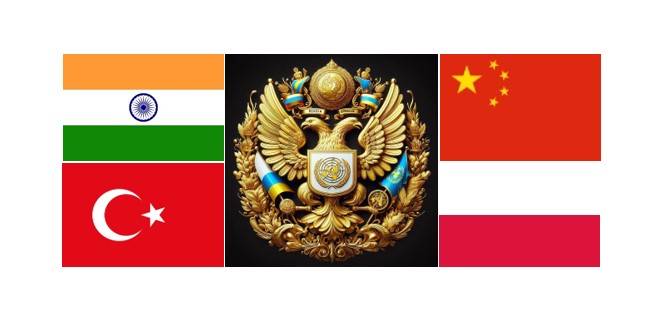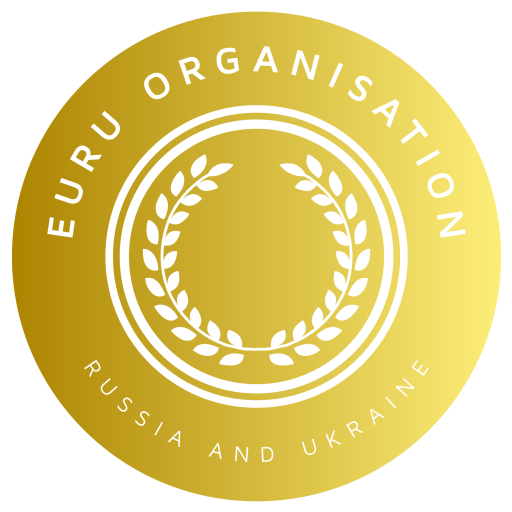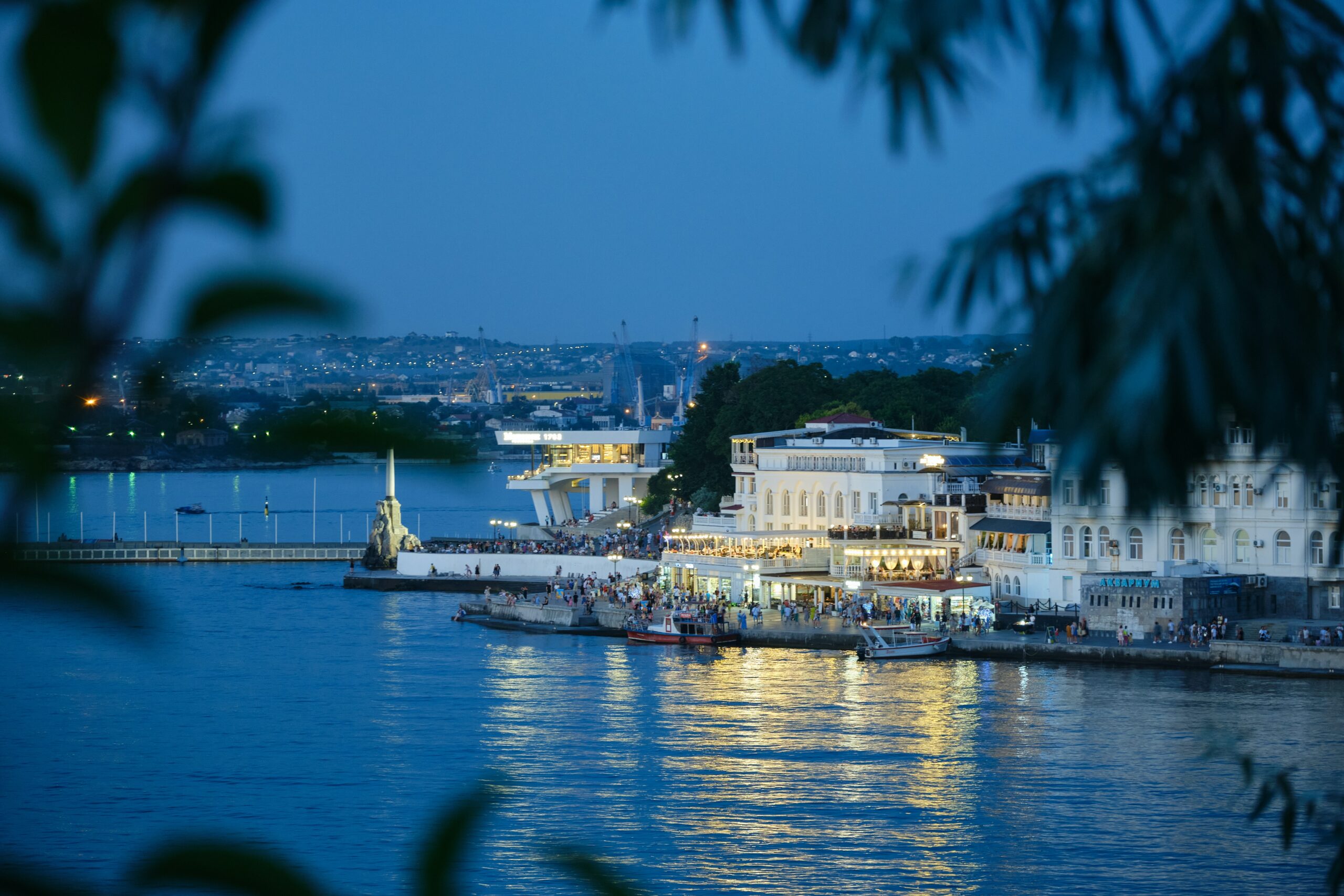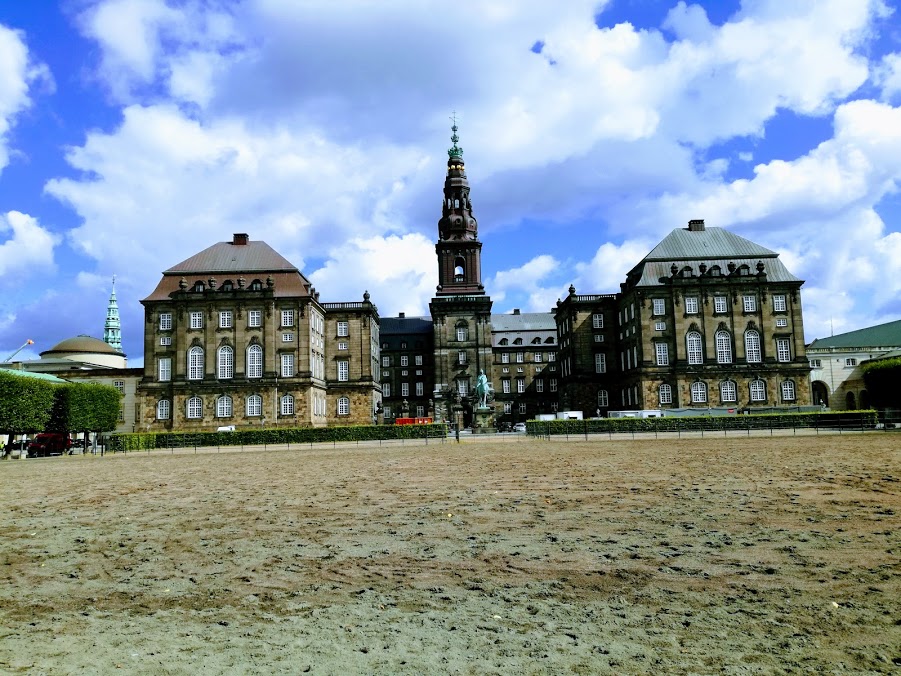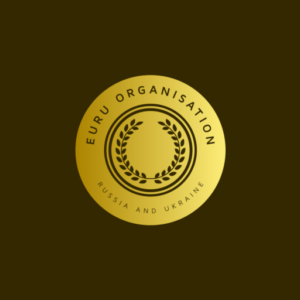As time passes since Russia’s invasion of Ukraine, the consequences of this war are becoming increasingly evident to the global community. It is dawning on many how these military actions are destabilizing not only the region but also the world order and stability that have characterized Europe for over 75 years.
We may be on the brink of a new world order that the international community can accept, but a continuation of this war is a scenario that cannot be tolerated. As former President Obama recently stated, the U.S. should not act as the world’s police but rather serve as a “democratic beacon.” It is clear that powerful nations outside the EU and the U.S. are forging new alliances that will inevitably influence power dynamics, trade, and geopolitical relations. However, the immediate focus must be on achieving peace between Russia and Ukraine.
Other Mediators Must Step In
Many have tried to mediate this conflict, but the time has come for powerful nations such as China, India, Poland, and Türkiye to collaborate in brokering peace between Russia and Ukraine. These nations can unequivocally convey to both parties that the situation is untenable and that a peaceful resolution must be sought at the negotiating table.
It is encouraging that numerous world leaders aspire to act as mediators, but progressing beyond this point appears to be more challenging. What is likely required is a more established format or forum—a platform or formalized body that can serve as a permanent venue for peace negotiations and strategy development, facilitating a path to peace for the conflicting parties.
The Current Situation and Future Implications
We all know that Russia possesses a large and formidable military, well-integrated into its surrounding society, with a wartime economy operating at full capacity and ample resources to mobilize additional troops. The ongoing Ukrainian defense has further legitimized the prospect of further mobilization. As the war progresses, the methods and weaponry become more sophisticated and devastating. More glide bombs, long-range missiles, and drones are expected as the conflict escalates.
It does not take a military strategist to foresee that the significantly smaller Ukrainian military, under pressure on the eastern front, will innovate and deploy increasingly sophisticated drones and devise creative and spectacular attacks against the Russian military and society. Just as Russian forces target critical Ukrainian infrastructure, we can anticipate that Ukraine will intensify its assaults on Russian infrastructure. A smaller nation with a less powerful military must adapt and be creative and dynamic to swiftly respond to changing conditions and emerging opportunities.
The situation is untenable for all parties, and it is merely a matter of time before Ukraine’s allies provide them with even greater access to the weaponry available. The Hungarian Foreign Minister has stated that Ukraine cannot win against Russia, nor can Russia prevail against Ukraine and its allies, which currently number around 50 countries. As many other nations have emphasized, Hungary desires peace, as do the leaders from India and China, and this sentiment is widespread. Everyone wishes for the fighting to cease and for diplomats to sit down and negotiate.
China and India Could Play a Vital Role
The future scenario is so grave that we are approaching a point where this conflict could disrupt international trade significantly. Therefore, it is crucial that countries like China and India actively engage and influence the parties involved to facilitate a ceasefire and initiate peace negotiations. I have no doubt that these two nations possess a somewhat different, holistic, and harmonious approach to peace talks than what we have observed from many other countries.
Can Countries Be Neutral?
During World War II, smaller nations maintained a neutral stance, which was feasible. However, if major nations claim neutrality while significantly increasing trade with the warring country, the approximately 50 nations allied with Ukraine may question this neutrality and adjust their trade relations, potentially leading to an unfortunate downturn in international trade that could impact millions of workers and exacerbate fragile geopolitical conditions worldwide.
There is no doubt that several countries, including Hungary, aspire to remain neutral, and like China and India, they wish to contribute to a peaceful resolution at the negotiating table. The remarkable developments, particularly from India, in recent times, alongside China, could help catalyze substantial peace negotiations between Russia and Ukraine. I have also suggested that Poland and Türkiye could play significant roles in future mediation efforts.
It matters less whether negotiations occur in India, Türkiye, or elsewhere; what is crucial is that the international community establishes a permanent body to underpin future peace talks. Ukraine has indicated a desire for the UN Secretary-General to lead these negotiations. The format I previously mentioned could certainly be utilized, but the time has come for diplomats to sit down and focus on saving lives and ensuring that Ukraine can be free and independent in the future. Simultaneously, it is vital that the Russian people can live and thrive freely in the world, just like everyone else in Europe. This message must be communicated clearly and unambiguously to Russian politicians and the Russian populace.
EU and Future Trade Relations
I will keep this section brief. Both Ukraine and Russia should be offered the same trade opportunities and agreements with the EU
A New Security Structure in Europe
In several articles, I have elaborated on the need for a new security structure in Europe, which entails establishing demilitarized zones along borders and refraining from military exercises near these borders. Additionally, we must expand the areas where military ships and aircraft maintain distance from each other’s borders where possible. We should also strive to ensure that countries do not host foreign troops on their soil during peacetime. Encircling Russia’s borders with heavy military equipment is profoundly misguided and geopolitically detrimental. Today, Russia poses a threat only to Ukraine and does not threaten our democracies. Our focus should be on saving lives in Ukraine and ceasing hostilities; other matters can be addressed later.
The reality is that in Scandinavia, we neither have the capacity nor the will to build a robust defense, as this would necessitate a decrease in living standards and state welfare. If the threat from Russia is so significant, it should be necessary to install PATRIOT systems or similar defense systems immediately and invest billions in these military capabilities. That said, it is essential that we maintain an adequate defense and military presence in Europe, enabling us to stand on our own in defending our national borders, exhibiting the resolve, pride, and independence that is necessary.
This requires a change in mindset and a willingness to integrate defense and military considerations into ordinary society, allocating the necessary 2 to 5% of GDP. This would allow us to compare ourselves to the strong and proud Poles.
Intelligence Agencies’ Activities
There has been considerable focus from intelligence agencies on increased Russian espionage activities and potential sabotage. Given the current political climate and rhetoric towards Russia, it is unsurprising that they are ramping up their intelligence efforts to locate critical infrastructure. However, both Russian and European intelligence services must justify their existence and secure increased funding, which is best achieved by cultivating a strong enemy image. As we all know from our experiences in politically led organizations, public entities will always seek more resources. This leads to more employees and greater status, whether in a municipality or public administration.
When several countries advocate for isolating the Russian populace from the rest of Europe, something has gone terribly wrong. Those individuals, operating in isolated circles, develop peculiar ideas that do not contribute to peace and stability but rather reflect poorly thought-out notions that should never have seen the light of day.
On the War
I planned to write about the current situation, but no one knows how it will end on the battlefield. We know that schools, shopping centers, hospitals, power plants, and oil depots are bombed daily, and nuclear power plants are in war zones. To my knowledge, hundreds of soldiers die every day. This war is so incomprehensible that I lack the words to describe how the Russian and Ukrainian brother nations could find themselves in such an overwhelming conflict. I empathize with the people and soldiers who must live under these tragic circumstances.
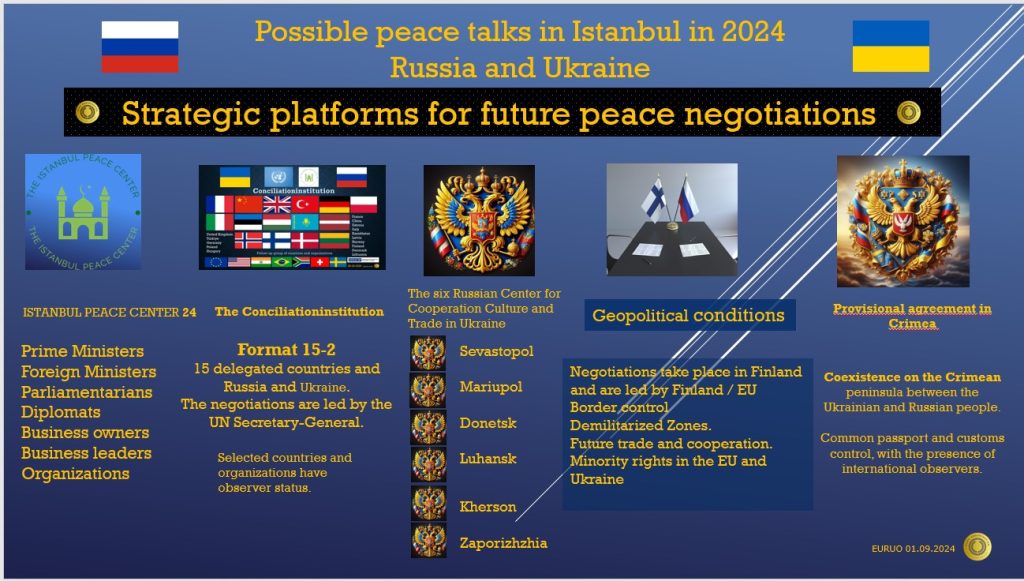
Ukraine and the Ukrainian People: Possible Concessions
The Ukrainian people have suffered immensely and continue to endure great hardship under constant Russian bombardment, as Russia’s warfare destroys entire communities and seeks to undermine Ukrainian resolve. For the Ukrainian people to return to a normal life and save lives, it is essential to consider some concessions to potentially initiate peace talks. Here are some areas/concessions that the country might explore if the people and government are willing:
- Greater autonomy for Donbas
- Coexistence on the Crimean Peninsula
- Equal rights for Russian-speaking citizens regarding education, language, and culture as they existed before 2014
- A new agreement regarding the naval base in Sevastopol
- No foreign military presence on Ukrainian soil during peacetime
- No nuclear weapons in the country
- Future cooperation in energy and trade
Russian Concessions
For Russia and its people, it is also crucial to return to a normal life, where they can feel secure and know that their sons and fathers will not have to go to war again, allowing for regular trade with all nations and the freedom to travel for leisure, study, or work. Russia must soften its stance and engage in dialogue with Ukraine to establish, for instance, six Russian centers to promote cooperation, trade, and culture in locations such as Sevastopol, Mariupol, Donetsk, Luhansk, Kherson, and Zaporizhzhia. Additionally, there should be an agreement on coexistence and collaboration on the Crimean Peninsula, with international observers present. A renegotiation of the agreement concerning the naval base in Sevastopol is also necessary.
The Lack of Diplomatic Coordination
It is sad to think that no one within diplomacy has figured out how to get more countries to coordinate upcoming peace negotiations and the reconstruction of Ukraine, as well as future economic cooperation in Europe and a corresponding new inclusive security structure. Continuous and intensive work is required if we are to move forward. I am talking about a coherent effort in the coming months, not these random and spontaneous meetings that arise where not all involved parties are invited to the discussions. Both the Ukrainian and Russian governments must be included, and additionally, parliamentarians and others who can help build bridges and mediate in the reconstruction of Ukraine should also be involved.
Possible Future Scenario After Peace is Established Between Russia and Ukraine
We must hope that with logic and common sense, we can make significant progress in the development and implementation of upcoming peace initiatives. However, if revenge and exclusionary mindsets drive the process, it will be difficult to reach safe harbor. Showing humility, sensitivity, and understanding toward both parties must be key principles. The question that inevitably arises is: what constitutes a just peace? As I write this, I am not thinking about heads of state, where future peace negotiations should take place, who will lead the negotiations, or which countries might benefit from one initiative or another.
Instead, I think about those who are sitting or lying in trenches and about the people who must get up at night and seek shelter in bunkers. I think about the doctors who are working around the clock to care for the wounded, and I think about the families who live in fear, not knowing if they will survive the night, whether they will have heat, water, or gas when they wake up in the morning. Or will they have to go down to the bomb shelter again tonight, and will the children have to be woken up once more?
The hope is that India, China, Turkey, Poland, France, Germany, Hungary, and the smaller countries bordering Russia can all work together toward a common peace solution, with the UN Secretary-General also playing a significant role.
Could This Be Part of the Ukrainian Speech?
We could imagine that the Ukrainian leader goes out and says, “Today we have achieved a ceasefire, and we have granted extended self-governance to Donbass, which was one of Russia’s demands. We have made a preliminary agreement on coexistence on the Crimean Peninsula. We have reached an agreement that the Russian minority in the country can continue to be educated in Russian, and that the Russian language and culture will continue to be preserved and integrated as a natural part of this society.
We have agreed that there will be no foreign military forces on Ukrainian soil during peacetime. However, we have made an agreement that Russia will maintain its naval base in Crimea. We will resume cooperation regarding energy transport, and we have entered into other trade agreements. In the diplomatic arena, we have agreed that Russia will have special diplomatic representations in six regions, which will help ensure reconstruction, trade, and future cooperation.
Fifty countries have committed to providing us with security guarantees and supplying us with military equipment. These countries, along with 20 others, have stated that they will assist in rebuilding our country, meaning that today there are about 70 countries willing to help rebuild our hospitals, schools, homes, road networks, and critical infrastructure.” …………….
Could This Be Part of the Russian Speech?
“Today we have reached a ceasefire agreement with Ukraine. We entered Ukraine to ensure that the Russian people in the country could have their natural rights. We have now granted extended self-governance to Donbass. We have made an agreement on coexistence on the Crimean Peninsula, which will be renegotiated in four years. We have reached an agreement that the Russian minority in the country can continue to be educated in Russian, and that the Russian language and culture will remain a natural part of the Russian population in Ukraine.
We have an agreement that there will be no foreign troops on Ukrainian soil. There will also be no nuclear weapons on Ukrainian soil. We will maintain our Black Sea fleet at our naval base in Sevastopol. In Europe, we have received assurances for a new security structure, which ensures that foreign forces are not stationed at our borders and that the borders will be secure and demilitarized. Thus, we have secured our vital security interests.
In Ukraine, we will also have our strong representations in Sevastopol, Mariupol, Donetsk, Luhansk, Kherson, Zaporizhzhia, and these will help promote culture, trade, and cooperation in the coming years, and we will also assist in modernizing these areas. All sanctions against our country, our businesses, and our citizens will be lifted, and we will once again cooperate with the countries and companies we wish to collaborate with.
This also means that Nord Stream 1 will reopen, and we will enter into new energy agreements with our partners in Europe. We will also begin negotiations with the EU to provide our companies with better access to this market.” …………..
There Are No Simple Solutions to Stalemated Conflicts
The conflict between Russia and Ukraine is a puzzle with countless pieces. The consequences of this conflict will shape Europe’s security landscape for decades to come, and it remains uncertain which direction history will take. It is clear that there is no simple solution to this conflict. However, if we do not respect all people involved in this conflict and realize that everyone has equal rights, things could go very wrong if equality among the populations in Europe is not desired.
Only through sustained dialogue and collaboration can we hope to find a sustainable solution to this complex and multidimensional conflict.
The conflict between Russia and Ukraine is a trauma that has serious consequences for both the region and international security. While the military clashes rage on, we must not forget the millions of people suffering as a result of the conflict. It is crucial to find a solution that ensures a peaceful future for all parties involved.
